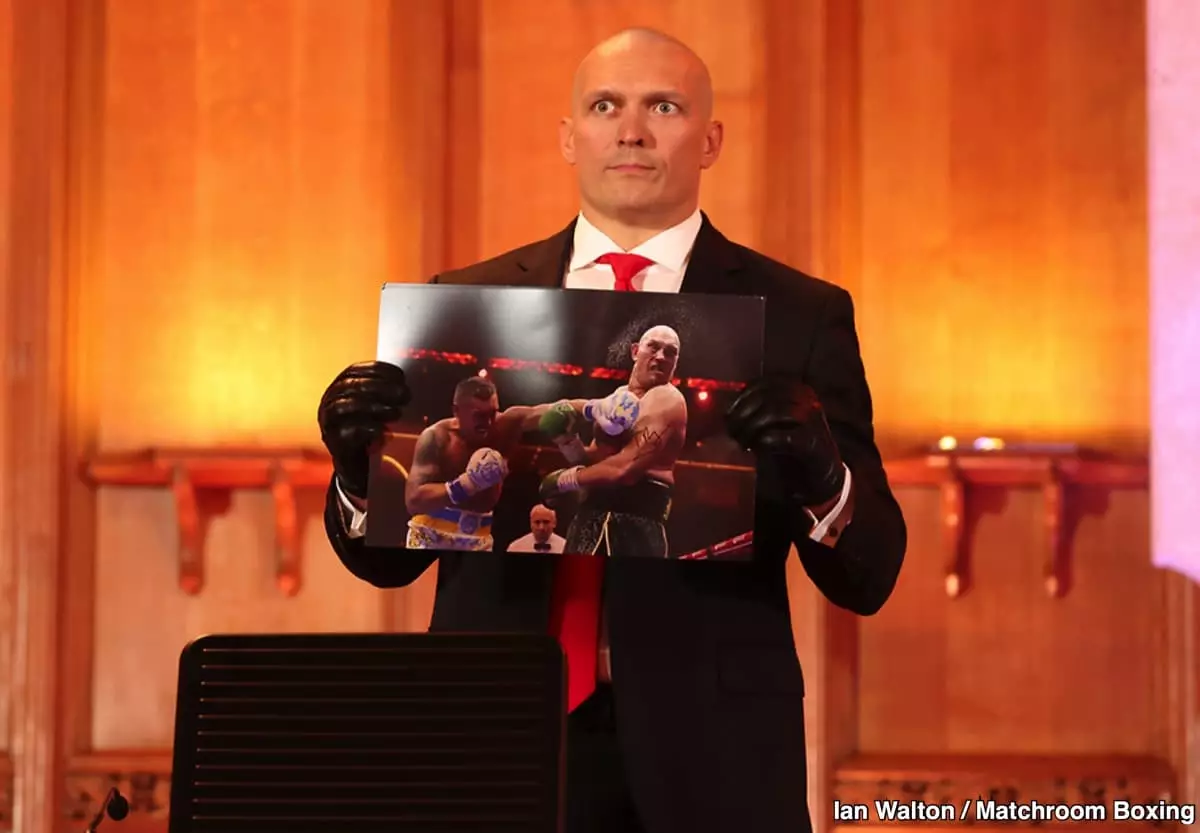In the elite realm of heavyweight boxing, every fight is steeped in tension and expectation. The upcoming rematch between Tyson Fury and Oleksandr Usyk on December 21st has sent ripples through the boxing community. Following their previous encounter, where Fury suffered a split decision loss to Usyk, the narrative surrounding this rematch is as charged as ever. With perspectives from seasoned journalist Colin Hart suggesting a bleak future for Fury, the matchup raises profound questions about the psychological ramifications of defeat and the capacity for athletes to rebound.
One of the prevailing themes mentioned in discussions leading up to this rematch is the psychological toll a loss can take on a fighter. Colin Hart articulates the concern that Tyson Fury, at 36 years old, has not only lost a fight but has also relinquished his title and his undefeated record. This sequence of events can weigh heavily on a fighter’s mindset. The loss – particularly one that calls into question the fighter’s abilities – can lead to self-doubt, affecting performance. For Fury, the defeat against Usyk may have ignited a spiral of introspection, leaving him vulnerable and perhaps stagnant in his growth as a competitor. The importance of mental fortitude in athletics, especially in a high-stakes sport like boxing, cannot be overstated.
Hart follows his psychological argument with a scathing critique of Fury’s development since their last bout. He posits that Fury has shown no significant signs of improvement, hinting at a stagnation in his skills and strategy. This perspective is bolstered by a lingering skepticism surrounding Fury’s past performance against other top-tier opponents. While Fury has indeed achieved notable victories, the quality of his earlier competition is under scrutiny. Hart points out how Fury’s most distinguished wins came against fighters who were past their prime or had technical flaws exploited by better-suited opponents. This critique raises an important point: can a fighter truly evolve when faced with a series of diminishing challenges?
The rematch with Usyk presents a unique challenge that Fury must face head-on. Hart’s commentary suggests that, unlike in previous bouts, Usyk will remain a formidable opponent who is aware of Fury’s weaknesses and is eager to exploit them. The manner in which Usyk nearly finished Fury in their first fight gives weight to the argument that the rematch could see a similar, yet definitive outcome.
The dynamics within a fighter’s corner can often dictate the outcome of a match as much as the fighter’s skill set. Hart has drawn attention to the disruptive influence of Fury’s father, John Fury, during the first encounter. While it is easy to attribute blame to external factors in a loss, Hart’s perspective simplifies the complexity of boxing. Yes, John Fury’s vocal presence did not enhance the strategic execution, but blaming his presence for the loss detracts from the more significant issues in Fury’s performance on that night. Regardless of corner demeanor or input, the fundamental question remains: was Fury prepared to defeat a relentless Usyk?
Fury’s success relies heavily on calm and strategic execution, particularly when facing an opponent of Usyk’s caliber. If John Fury steps back and allows for a more balanced coaching approach, Fury may find his rhythm again. However, if mental barriers stemming from previous losses persist, the disruptive nature of the past may echo through the ring once more.
As anticipation builds for the rematch, attention inevitably shifts to the aftermath of the fight. Whether Fury triumphs or Usyk claims victory, there are broader implications for the heavyweight boxing scene. Hart tantalizingly speculates about the potential for a future clash between Anthony Joshua and either fighter, regardless of the outcome. This intersection of fighter narratives puts focus on the lack of viable matchups within the heavyweight division and invites discussion about the health of the sport itself.
Although Joshua and Fury have faced setbacks in recent years, the allure of their potential matchup remains. However, as Hart suggests, both fighters must first navigate the challenges posed by Usyk. Should either Fury or Joshua falter, it could reshape the route to greatness for incoming challengers like Daniel Dubois or Martin Bakole, sparking new narratives in the heavyweight division.
The December 21st rematch between Tyson Fury and Oleksandr Usyk is not merely a battle for a title; it is a fight that will set the trajectory for future heavyweight matchups. The psychological battles, the tactical adjustments, and the fallout from this clash promise a significant chapter in boxing history. It poses critical reflections on the nature of defeat, the evolution of athletes, and the roles played by those in their corners. Ultimately, how Fury responds to these multifaceted pressures will dictate not only his future but potentially the landscape of heavyweight boxing for years to come.

